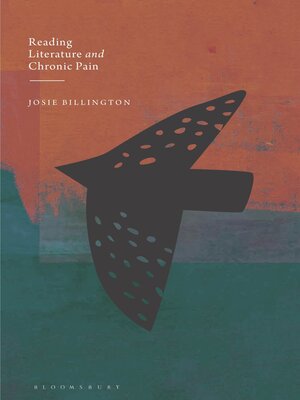
Sign up to save your library
With an OverDrive account, you can save your favorite libraries for at-a-glance information about availability. Find out more about OverDrive accounts.
Find this title in Libby, the library reading app by OverDrive.



Search for a digital library with this title
Title found at these libraries:
| Library Name | Distance |
|---|---|
| Loading... |
This valuable and insightful study into chronic pain and its treatment advances a striking analysis of the complex phenomenon of chronic pain, also attesting to the importance of the medical humanities in addressing urgent questions that medical science alone cannot resolve.
The primary purpose of this book is twofold. First, to demonstrate empirically – against a conceptual background drawn from multiple disciplines and knowledge bases (historical, medical, neurobiological, psychological, socio/anthropological) – how an apparently 'soft' intervention such as literary reading can effectively combat symptoms of a condition as intractable as chronic pain. Second, to explore what this evidence tells us about pain (as a lived experience as well as a condition in urgent need of new treatment options) and about literature and the reading of fiction and poetry as therapeutic influences in contemporary health and healthcare, most particularly in alleviating the (often severe) mental health difficulties with which chronic pain is almost universally associated.
Based on unique empirical research with people who are living with chronic pain, this book is the first of its kind to demonstrate the value of literature and literary reading both as a discourse for understanding and 'finding' pain and as an intervention in its treatment.
The primary purpose of this book is twofold. First, to demonstrate empirically – against a conceptual background drawn from multiple disciplines and knowledge bases (historical, medical, neurobiological, psychological, socio/anthropological) – how an apparently 'soft' intervention such as literary reading can effectively combat symptoms of a condition as intractable as chronic pain. Second, to explore what this evidence tells us about pain (as a lived experience as well as a condition in urgent need of new treatment options) and about literature and the reading of fiction and poetry as therapeutic influences in contemporary health and healthcare, most particularly in alleviating the (often severe) mental health difficulties with which chronic pain is almost universally associated.
Based on unique empirical research with people who are living with chronic pain, this book is the first of its kind to demonstrate the value of literature and literary reading both as a discourse for understanding and 'finding' pain and as an intervention in its treatment.







